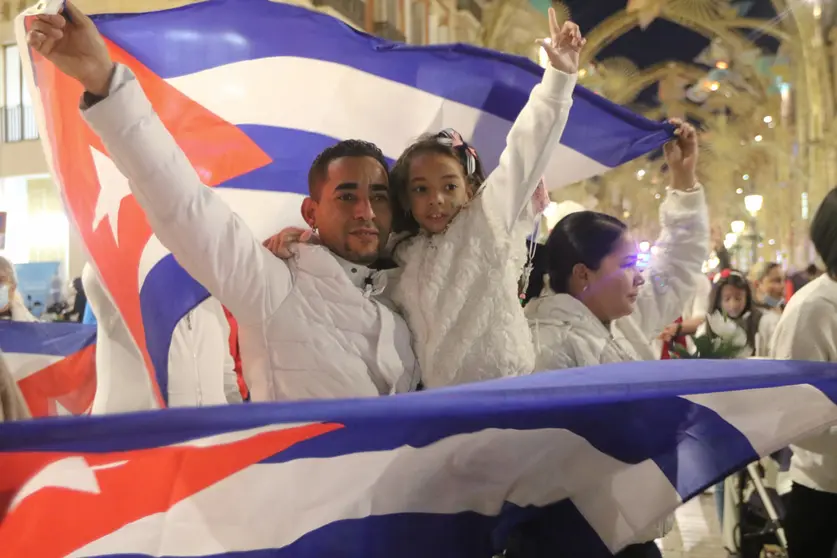Fearing a repeat of the images that spread around the world on 11 July, when thousands of Cubans unexpectedly took to the streets to call for political change in the communist island, the Cuban government unleashed a wave of arrests and intimidation to frustrate a march called for Monday to protest against state violence and advocate for the release of political prisoners.
To keep Cubans indoors, the government mobilized the military, the police and special units known as Black Berets to patrol the streets.
Trucks and police cars were parked along main avenues, along the famed Malecon seawall promenade in Havana and in other cities, ready to block streets. Central parks in the country’s biggest cities were filled with government supporters and state security agents.
State workers and members of the Communist Party and other political organizations were sent to stage so-called acts of repudiation against known dissidents and activists.
The dissidents daring to go outside, including Manuel Cuesta Morua, Ladies in White’s Berta Soler, Angel Moya and art historian Carolina Barrero, were arrested.
The quiet streets were also the result of a weekslong campaign of harassment that used state media to send the message to the population that the government would not tolerate the demonstrations. Preemptive detentions started well before Monday.
Activists and social media influencers who showed support for the initiative were subjected to interrogation by state security, fired from their jobs and threatened with criminal charges.
The extensive security operation as well as the time and space devoted to criticizing Archipielago, the group behind the march, in state media have suggested to the population that despite the triumphalist rhetoric and the accusations about US involvement, the government of Miguel Diaz-Canel considers that the opposition movement poses a significant challenge to its legitimacy.
Fracture
The widespread protests on July 11 showed a significant fracture in an island that was once ruled by the iron fist of Fidel Castro.
Many artists, intellectuals, famous musicians, and even former government supporters have joined the ranks of the opposition, criticized the violence unleashed on the protesters, or showed some public support for Archipielago.
Videos posted online by activists late Sunday and Monday morning show a vast deployment of police and special units known as "black berets" throughout the country.
Santa Clara’s central park was packed with state security agents and pro-government supporters dressed in red, some carrying sticks, according to an image shared in a private message chat and seen by the Herald.
Another photo shared with the Herald shows several trucks parked along one of Holguin’s main streets. The trucks, belonging to state companies, were positioned in case authorities wanted to block off a street, the person sharing the image said.
The Herald granted anonymity to Cubans sharing images and information who requested that their names not be used out of fear of government retaliation.
The White House watched the events closely throughout the day.
Sanctions
"Whereas they were caught by surprise on 11 July, they have been clearly working in the run-up to this one to intimidate Cubans to not go out and demand greater freedoms. And I think we’re seeing that today," a senior administration official said.
The official said the Biden administration was monitoring the violence and was ready to sanction individuals involved and "express solidarity with those who have been detained."
As the hours passed with no big demonstrations on Monday, Cubans on the island moved to private chats to debate the lessons of the day. Some said they were disappointed. Others noted that a massive rally was not expected given the relentless crackdown and imposing police deployment. Many believe that in the future, the government should not be given so much time ahead to prepare its response, since the event had been announced several weeks in advance.
But another group was more optimistic, pointing out that the initiative forced the government to mobilize its security apparatus in such a strident way "that the repression will open the eyes" of Cubans and the international community, said one of the chat members.
"It won’t be today nor tomorrow," said another, "but nobody can’t stop this."
Ahead of the planned march, Yunior Garcia, the actor and playwright who has served as the leading voice of Archipielago, said that even if the government suppresses it, it already fulfilled its goal to be a wake-up call.
"Whatever happens, the message has to be that the Cuban people need to start thinking as citizens," Garcia told the Herald Sunday. "Civility is what will lead us to end this dictatorship."










